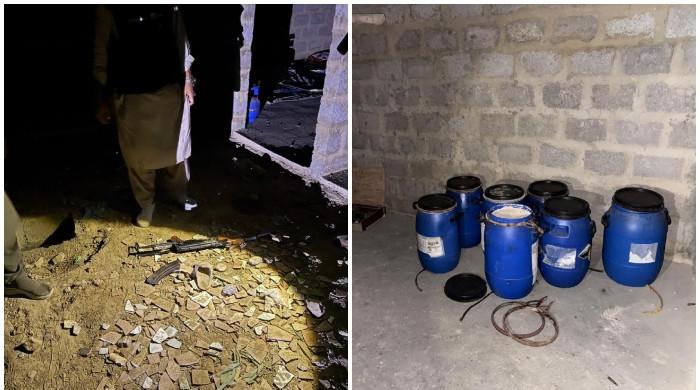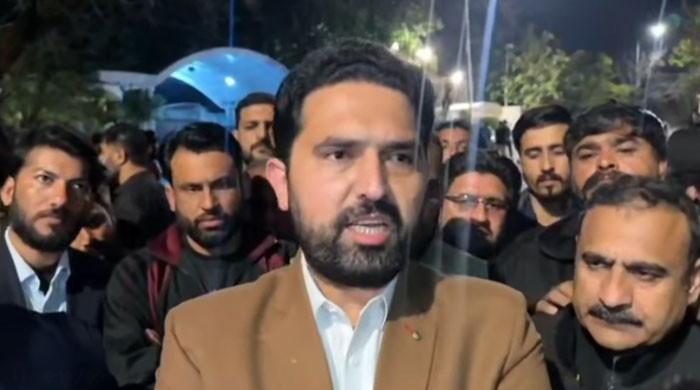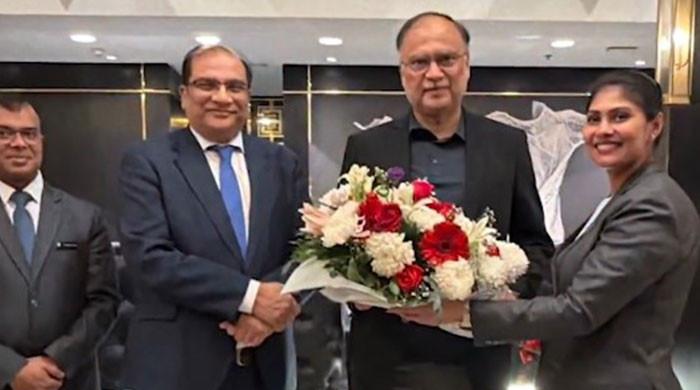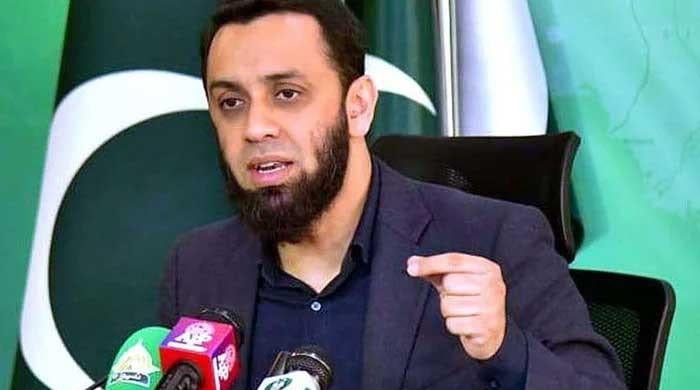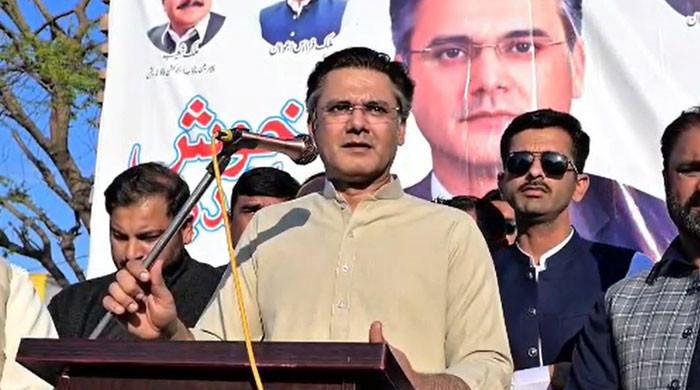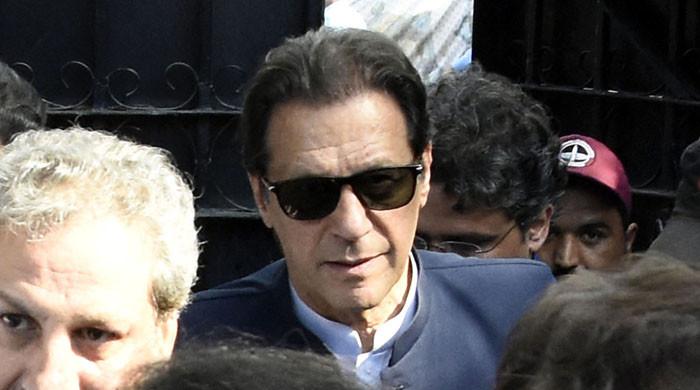Restructuring the police during a pandemic
Since crime, all over the country, has drastically decreased, police should divert its attention towards eliminating the menace created by COVID-19
April 22, 2020
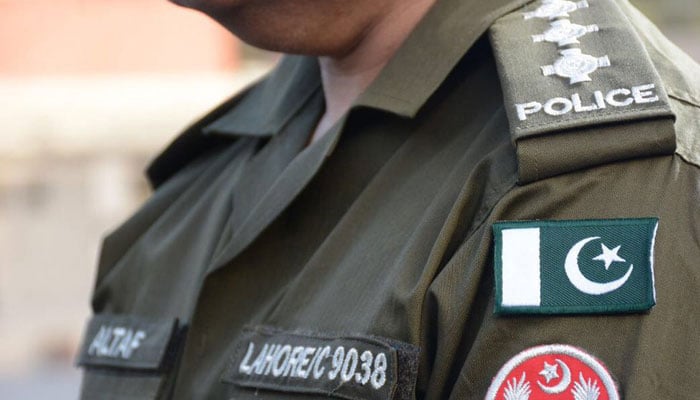
Police is an old and important institution. Its main task is the maintenance of law and order all across the country.
Pakistan has nearly 2,000 police stations and a total of 450,000 police personnel. Since, at the moment, our local bodies system is not very effective, the country can rely on the police force to provide better service delivery during a pandemic. But that would require the state to reorganize the force in a manner which effectively tackles COVID-19.
Firstly, what should the role of the police be during the current health crisis?
— Crime prevention and security
— Ensuring the lockdown is maintained and safety precautions, discipline, physical distance is followed in stores and factories which are now allowed to open
— Crowd management and prevention of looting, arson and vandalism during riots
— Assistance in ration supply and financial aid
Now the police has several departments at the provincial, regional and district level, in Pakistan. A large number of police officials including inspectors, deputy superintendent (DSPs), assistant superintendent (ASPs) and senior-level officers perform functions other than operational or field duties.
At the moment, several policemen are not performing active duty as they have been put on Special Duty (OSD), which means an officer with no duty.
Since crime, all over the country, has drastically decreased, the police should divert its attention towards eliminating the menace created by COVID-19 by helping government institutions, NGOs and volunteers of the Prime Minister’s Corona Tiger Force for a smooth and just distribution of aid to the needy people.
Officers in uniform can also assist the government in identifying daily wagers and the underprivileged in need of a cash stipend, under the state’s Ehsaas programme.
To deliver on all of the above, the police will need to be reorganized, not only at the provincial and divisional level but also at the district level on a temporary basis.
For starters, in every region, the police should be commanded by an officer of the rank of Additional Inspector General (IG) and not Deputy Inspector General (DIG) of the police. Once the Additional IG is appointed, the DIG should not be removed. Instead, he/she can become the second in command.
At the district level, where an officer of the Senior Superintendent of Police (SSP) rank heads the department, the DIG should take over. However, the SSP may be appointed in a district where an SP is already posted as the District Police Officer. Again, these SSPs and SPs should not be sent on leave but remain in their departments to work with the respective DIG.
Similarly, the offices overlooked by the DSPs or ASPs may be commanded by an SP of NPS 18 officer.
Since the circumstances Pakistan, and the world, finds itself in are extraordinary police officers should be posted in areas where they have acquaintances or have previously been posted. An officer with local links will be helpful during the implementation and ration distribution drive.
Presently, every police station in Pakistan has a Station House Officer (SHO), an Additional SHO and an in charge of the investigation branch. Since the crime rate has decreased, and coronavirus is the focus, there should be four additional SHOs, of the rank of inspector, under the command of the SHO in every police station. Their tasks will be as following:
— An Additional SHO Crime and Security, who will prevent and investigate crime in his area.
— Additional SHO Anti-Corona, who will ensure the implementation of the lockdown, and safety precautions. Moreover, the Additional SHO and his subordinates will keep an eye on price hikes and hoarding as well as assist the District Administration to take legal action against hoarders.
— Additional SHO Crowd Management. This officer’s job will be to handle and disperse crowds. However, in case of hooliganism, looting, arson and vandalization during riots, the armed and semi-armed forces should step in.
— Additional SHO Coordination & Welfare. He/she will coordinate to distribute rations bags and financial aid as well as supervise the activities of the Corona Tiger Force. This officer will also be tasked to survey and register those most in need of a cash stipend in his/her area.
Restructuring aside, more will also need to be done to assist the police in providing these essential duties. Arrangements should be made to increase the strength of police personnel at the lower level. Thus, the police should at least be allowed to fill those vacant posts for which no extra-budgetary resources are required.
Now, recruitment processes can be lengthy. But there is a solution. Every year, millions of youngsters apply for the post of constable, in every district of Pakistan. Those successful then appear for an interview. However, most of the candidates fall short of being appointed due to limited posts. The list of candidates, who passed but did not get a posting, is available. It can be used to hire more constables.
Similarly, the Punjab police has requested the Punjab Public Service Commission for the recruitment of about 500 sub-inspectors (SI) against vacant posts. The PPSC can select the candidates of sub-inspector from the previous list of candidates who were successful but could not be employed.
Another issue is the empowerment of officers of the district administration. How can an AC or magistrate prevent hoardings, price hiking and crimes such as adulterating of food and medicine with limited powers? For that, all provincial governments should vest magisterial powers in an officer of the district administration, so that they can fine or award other punishments as per law on the spot for strict implementation.
More officers will also require more office space. I would recommend that additional officers and junior employees be adjusted in schools or marriage halls, lying vacant at the moment, that are adjacent to their respective police stations.
Similarly, to meet the requirement of vehicles for additional officers and SHOs, the vehicles of government officers not currently in use can be assigned to these officers.
Tahir Alam Khan is the former IGP of Islamabad




